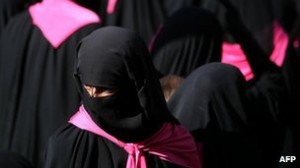By Ali Al-Bassam
Impunity Watch Reporter, Middle East
DAMASCUS, Syria — In a deal with Syrian President Bashar Al-Assad, brokered by Qatar and Turkey, a Syrian opposition group released 48 Iranian prisoners in exchange for 2,130 civilian prisoners . On Wednesday, the prisoners were met by the Iranian Ambassador, Mohammed Reza Shibani, in Damascus. They were then flown to Tehran. The exchange was the biggest to occur in the 21-month old Syrian conflict.

“This is the result of months of civil diplomacy carried out by our organization,” said Bulent Yildirim, head of the Humanitarian Relief Foundation, a Turkish humanitarian group who helped broker the deal.
Iranian state television reported that the Iranian prisoners were held hostage by Syrian opposition fighters since last August, and were threatened to be executed. Iran said that the prisoners are Shias who traveled to Syria on part of a pilgrimage. Opposition fighters, however, claimed that the prisoners were members of Iran’s National Revolutionary Guard who came to Syria with the purpose of assisting pro-Assad forces.
The opposition fighters released a video showing Iranian military identification cards, allegedly taken from the captives. “The fighters captured 48 of the Shabiha (militiamen) of Iran who were on a reconaissance mission in Damascus,” said a man in the video, who appeared to be an officer of the Free Syrian Army. “During the investigation, we found that some of them were officers of the Revolutionary Guards,” he said, revealing ID documents taken from a prisoner who was in the background.
The Iranian government denounced the allegations, insisting that the prisoners traveled to Syria to visit the Sayyida Zainab shrine south of Damascus where they were captured. An official at the Iranian Pilgrimage and Travel Organization denied that the prisoners were linked to Iran’s Revolutionary Guards, and said that the group, which included college student and public servants, were all civilians.
Of the 2,130 civilian prisoners who were brokered as part of the deal, 73 of them are women, four are Turkish citizens, and one is a Palestinian. The others are Syrian. “Most of the prisoners to be swapperd are Syrian citizens in exchange for Iranians, and there are a few Turks as well,” said Osman Atalay,board member of the Humanitarian Relief Foundation.
Meanwhile, Lakhdar Brahimi, UN Envoy to Syria, said of Assad’s speech last Thursday, where he called on Syrians to fight the “murderous criminals,” was a “lost opportunity to resolve the crisis in Syria.” Brahimi will meet with top US and Russian officials in Geneva next Friday to discuss ways to push through a peace plan which was outlined by the Action Group for Syria.
For further information, please see:
Al Arabiya — Syria Rebels Release 48 Iranians in Prisoner Swap: Reports — 9 January 2013
Al Bawaba — Iranians Freed by Syrian Opposition Fighters Arrive in Damascus Hotel — 9 January 2013
Al Jazeera — Syrian Rebels Free Iranian Hostages in Swap — 9 January 2013
BBC News — Iranians Held by Syria Rebels Released — 9 January 2013


